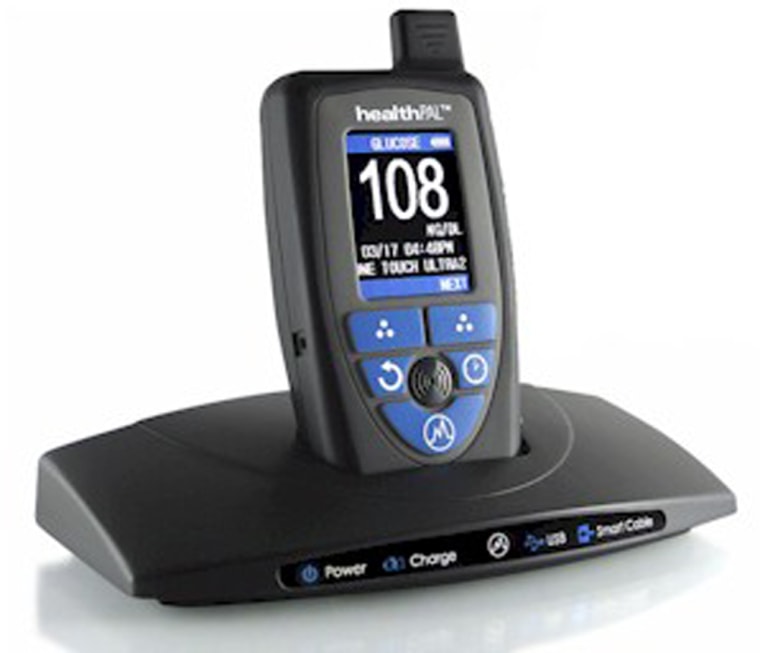There’s an easily identifiable culprit to blame for Americans’ not having fully digitized health care service and medical records:
You.
Doctors and medical technology executives said Saturday that the biggest hurdle to computerizing health care isn’t tradition or Luddism or bureaucracy — it’s the reluctance of consumers to sign on. Without consumer demand, manufacturers and administrators can’t justify the upfront cost of digitizing patients’ cases and securing their records because they can’t be reasonably sure they’ll recover their investment.
“The health care dollar has really been stretched to the extreme in the United States,” Deepak Ayyagari, director of technology programs for Sharp Laboratories of America, said during a daylong conference on digital health at the annual International Consumer Electronics Show. “We can’t invest further in all the things required because we don’t see a market.”
Horst Merkle, director of information management for the Diabetes Care unit of F. Hoffman-La Roche Ltd., an international medical services company, cited projections that it could take as long as 12 years for a health care company to recoup the cost of underwriting a full transition to electronic health records and asked, “How do you track that?”
“Return on investment is a very important thing,” he said.
Transition continues, but will it stick?
Nearly all clinicians and administrators agree that “this industry needs to get digitized first and foremost,” said Clint McClellan, senior director of market development for Qualcomm Inc., an early entrant into the digital health care market with its wireless cardiac monitoring service seven years ago.
The transition is already well under way: The $787 billion federal economic stimulus package includes about $40 billion, to be spent over five years, to encourage the adoption of information technology by doctors and hospitals, with an emphasis on digitizing patient records and making them portable.
The advantages are clear, said Chuck Parker, executive director of the Continua Health Alliance, a nonprofit industry group promoting networked electronic health care services:
With all of your medical records centralized in a single database immediately available to all of your care providers, faster diagnoses and treatments can be offered with less chance that something will go wrong because a crucial piece of information might be missed. And because a physician can audit your entire medical history at a glance, he or she can offer a better targeted program of prevention to keep you out of the hospital in the first place.There are serious issues slowing the transition, however, Parker and others said Saturday.
Those include maze-like regulatory regimes that differ from federal agency to federal agency and from state to state, as well as hard-to-navigate reimbursement policies on the part of government and private insurers, which Hyung Kim, vice president of research for Ascension Health, a nonprofit health system with operations in 20 states, called “the challenge of the extraordinary promise of this industry.”
Patients want privacy, personal control
But the biggest resistance is coming from patients themselves, who fear lapses of security in recordkeeping and too much concentration of personal information in too few hands.
David Cerino, general manager of the Consumer Health Solutions Group for Microsoft Corp., said consumers wouldn’t significantly endorse digital health care until providers met three conditions:
- Transparency. Patients want to know exactly what’s being recorded and exactly who can and can’t see it.
- Control. Patients want to have the final say on their care.
- Security. Patients want to know that their records won’t be compromised as they’re shuttled from doctor to lab to hospital to insurer.
(Msnbc.com is a joint venture of Microsoft and NBC News.)
For patients, a cost-benefit analysis
What it comes down to is an old-fashioned value proposition, Cerino said — are the benefits of digitization worth the potential loss of privacy and control?
They are, said Colin Evans, president and chief executive of the Dossia Consortium, which aggregates digital health records for some of the nation’s largest corporations, including Intel Corp., AT&T Corp. and Wal-Mart Corp.
“Very often, security is thrown up as an excuse, not a reason” for sitting out the move to electronic health records, said Evans, who maintained that while a file folder full of single-copy records may be secure, “perfectly secure, unmovable data is useless.”
“Health care is organized for everybody’s benefit except the patient,” Evans said, because “health care is addicted to its own inefficiency.”
Human factors can’t be digitized
In fact, said Anna-Lisa Silvestre, vice president of online services for Kaiser Permanente Inc., the nation’s largest health maintenance organization, it’s a misconception that data security is “all about technical risk.”
“You can never completely eliminate the human factor,” Silvestre said, adding that medical privacy was commonly breached because of enmity between divorcing couples, who might try to get hold of their spouses’ files as ammunition in settlement or child custody disputes.
Those factors have nothing to do with technology, said John Moore, managing director of industry analysts Chilmark Research, who added a couple of more ways records can be compromised: by absent-minded employees who simply misplace them and by dishonest employees who may sell them to data thieves.
But until the individual consumer learns enough about digitization, those realities are irrelevant, experts said. And that means building a “chain of trust” for patients — specifically, for the “family health manager,” who is usually the mother in a family, said Cerino, of Microsoft.
“It doesn’t matter if I do my part” building an efficient, easy-to-use medical systems if doctors, insurers and employers don’t answer consumers’ questions about their ability to handle their data privately and securely, he said.
Oddly enough, Cerino said, the most important person in establishing that trust is the family physician — “the least technical person in the bunch.”
If your doctor buys in, you probably will, too, he said, because “we’ll do anything a doctor tells us to do.”
